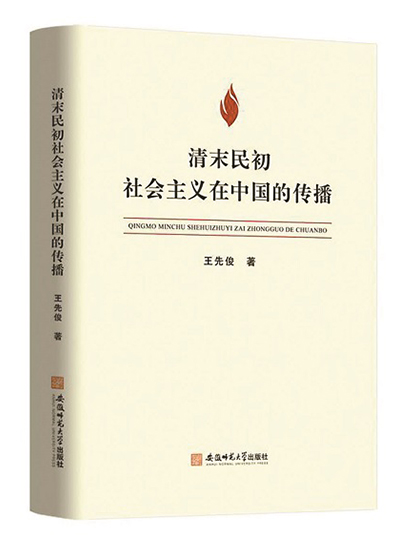Early dissemination of socialism in China

The Dissemination of Socialism in Late Qing and Early Republican China
The Dissemination of Socialism in Late Qing and Early Republican China, written by Wang Xianjun, a professor from the School of Marxism at Anhui Normal University, looks at the historical context of socialism as it was introduced into China. It focuses on how the Chinese people got to know socialism in the general tide of the eastward dissemination of Western learning.
The book analyzes the relations between socialism’s dissemination and different social groups, including bourgeois reformists, bourgeois revolutionaries, anarchists, and late-Qing Chinese students studying in Japan. It aims to clarify the historical process of socialism’s transmission in China, and unveil the basic characteristics and historical status of socialism’s dissemination in the late Qing and early Republican era.
In Wang’s view, socialism is first and foremost an idea or doctrine, so the study of its dissemination history should fall to the specific category of intellectual history. According to this definition and explanation, the book strictly abides by the rules and paradigm of intellectual history studies.
Thus it highlights the interpretation of specific “historical texts.” Wang suggests arranging and analyzing the context and features of socialism’s spread based on historical texts, rather than employing “preset” modes to organize materials and narration.
The book focuses on the restoration of social history from the vertical level. It tries to, from various fields of social life, determine the complex reasons for the formation of specific thoughts of specific individuals or groups at certain stages, analyzing its influence in various fields of “social existence.” Spanning the late Qing to the early Republican era, the book touches on why and how China was introduced to socialism, who introduced it, why it saw an upsurge of transmission in China in the early 20th century, what influence it brought about, and why there arose the misreading of socialism. The author posits that the answers to these questions must trace from all aspects of social life at the time.
Wang also affirms a remarkable feature of modern China, the prominent role of thought in real life and historical evolution. Objective national crises and subjective strong aspirations created a development situation where ideas transcended realities in modern China; where thought preceded and directly led to social reform.
The author conducts a horizontally stratified comparative study at three levels. The first level contains disseminators and audience, mainly including officials, overseas Chinese students, the bourgeoisie, and anarchists. The second one touches upon dissemination channels: mainly with the West and the East, as two regions; and books and journals, as two media. The third centers on communication contents, which had a strong subjective consciousness and was deeply influenced by Japan.
Zhou Liangshu is a professor from the School of Marxism at Peking University.
Edited by YANG LANLAN
